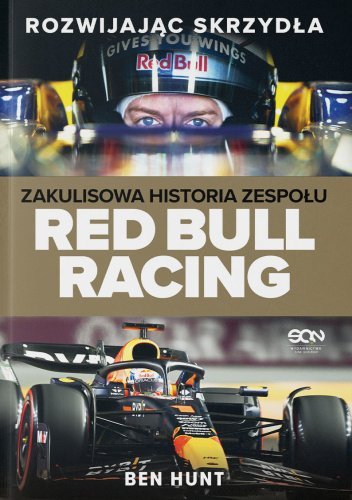Clausewitz, Carl von - On War
| Szczegóły | |
|---|---|
| Tytuł | Clausewitz, Carl von - On War |
| Rozszerzenie: | |
Clausewitz, Carl von - On War PDF - Pobierz:
Pobierz PDF
Clausewitz, Carl von - On War - podejrzyj 20 pierwszych stron:
Strona 1
Home Sun Tzu Temple Purchase About Us Contact
KARL VON CLAUSEWITZ
"ON WAR"
Translator: Colonel J.J. Graham
BOOK I: ON THE NATURE OF WAR
I
WHAT IS WAR?
II
END AND MEANS IN WAR
III
THE GENIUS FOR WAR
IV
OF DANGER IN WAR
V
OF BODILY EXERTION IN WAR
VI
INFORMATION IN WAR
VII
FRICTION IN WAR
VIII
CONCLUDING REMARKS
BOOK II: ON THE THEORY OF WAR
I
BRANCHES OF THE ART OF WAR
II
ON THE THEORY OF WAR
III
ART OR SCIENCE OF WAR
IV
METHODICISM
V
CRITICISM
VI
ON EXAMPLES
Strona 2
BOOK III: OF STRATEGY IN GENERAL
I
STRATEGY
II
ELEMENTS OF STRATEGY
III
MORAL FORCES
IV
THE CHIEF MORAL POWERS
V
MILITARY VIRTUE OF AN ARMY
VI
BOLDNESS
VII
PERSEVERANCE
VIII
SUPERIORITY OF NUMBERS
IX
THE SURPRISE
X
STRATAGEM
XI
ASSEMBLY OF FORCES IN SPACE
XII
ASSEMBLY OF FORCES IN TIME
XIII
STRATEGIC RESERVE
XIV
ECONOMY OF FORCES
XV
GEOMETRICAL ELEMENT
XVI
ON THE SUSPENSION OF THE ACT IN WAR
XVII
ON THE CHARACTER OF MODERN WAR
XVIII
TENSION AND REST
Strona 3
BOOK IV: THE COMBAT
I
INTRODUCTORY
II
CHARACTER OF THE MODERN BATTLE
III
THE COMBAT IN GENERAL
IV
THE COMBAT IN GENERAL
V
ON THE SIGNIFICATION OF THE COMBAT
VI
DURATION OF THE COMBAT
VII
DECISION OF THE COMBAT
VIII
MUTUAL UNDERSTANDING AS TO A BATTLE
IX
THE BATTLE
X
EFFECTS OF VICTORY
XI
THE USE OF THE BATTLE
XII
STRATEGIC MEANS OF UTILISING VICTORY
XIII
RETREAT AFTER A LOST BATTLE
XIV
NIGHT FIGHTING
Home | The Library | The Temple | Top of Page
Copyright © 2000 Sonshi.com. All Rights Reserved.
Strona 4
Home Sun Tzu Temple Purchase About Us Contact
KARL VON CLAUSEWITZ
"ON WAR"
BOOK I. ON THE NATURE OF WAR
Table of Contents | The Library | Next
CHAPTER I. WHAT IS WAR?
1. INTRODUCTION.
We propose to consider first the single elements of our subject, then each branch or
part, and, last of all, the whole, in all its relations--therefore to advance from the
simple to the complex. But it is necessary for us to commence with a glance at the
nature of the whole, because it is particularly necessary that in the consideration of
any of the parts their relation to the whole should be kept constantly in view.
2. DEFINITION.
We shall not enter into any of the abstruse definitions of War used by publicists. We
shall keep to the element of the thing itself, to a duel. War is nothing but a duel on an
extensive scale. If we would conceive as a unit the countless number of duels which
make up a War, we shall do so best by supposing to ourselves two wrestlers. Each
strives by physical force to compel the other to submit to his will: each endeavours to
throw his adversary, and thus render him incapable of further resistance.
WAR THEREFORE IS AN ACT OF VIOLENCE INTENDED TO COMPEL OUR OPPONENT TO
FULFILL OUR WILL.
Violence arms itself with the inventions of Art and Science in order to contend against
violence. Self- imposed restrictions, almost imperceptible and hardly worth
mentioning, termed usages of International Law, accompany it without essentially
impairing its power. Violence, that is to say, physical force (for there is no moral force
without the conception of States and Law), is therefore the MEANS; the compulsory
submission of the enemy to our will is the ultimate object. In order to attain this
object fully, the enemy must be disarmed, and disarmament becomes therefore the
immediate OBJECT of hostilities in theory. It takes the place of the final object, and
puts it aside as something we can eliminate from our calculations.
3. UTMOST USE OF FORCE.
Strona 5
Now, philanthropists may easily imagine there is a skilful method of disarming and
overcoming an enemy withoutgreat bloodshed, and that this is the proper tendency of
the Art of War. However plausible this may appear, still it is an error which must be
extirpated; for in such dangerous things as War, the errors which proceed from a spirit
of benevolence are the worst. As the use of physical power to the utmost extent by no
means excludes the co-operation of the intelligence, it follows that he who uses force
unsparingly, without reference to the bloodshed involved, must obtain a superiority if
his adversary uses less vigour in its application. The former then dictates the law to
the latter, and both proceed to extremities to which the only limitations are those
imposed by the amount of counter- acting force on each side.
This is the way in which the matter must be viewed and it is to no purpose, it is even
against one's own interest, to turn away from the consideration of the real nature of
the affair because the horror of its elements excites repugnance.
If the Wars of civilised people are less cruel and destructive than those of savages, the
difference arises from the social condition both of States in themselves and in their
relations to each other. Out of this social condition and its relations War arises, and by
it War is subjected to conditions, is controlled and modified. But these things do not
belong to War itself; they are only given conditions; and to introduce into the
philosophy of War itself a principle of moderation would be an absurdity.
Two motives lead men to War: instinctive hostility and hostile intention. In our
definition of War, we have chosen as its characteristic the latter of these elements,
because it is the most general. It is impossible to conceive the passion of hatred of the
wildest description, bordering on mere instinct, without combining with it the idea of a
hostile intention. On the other hand, hostile intentions may often exist without being
accompanied by any, or at all events by any extreme, hostility of feeling. Amongst
savages views emanating from the feelings, amongst civilised nations those emanating
from the understanding, have the predominance; but this difference arises from
attendant circumstances, existing institutions, &c., and, therefore, is not to be found
necessarily in all cases, although it prevails in the majority. In short, even the most
civilised nations may burn with passionate hatred of each other.
We may see from this what a fallacy it would be to refer the War of a civilised nation
entirely to an intelligent act on the part of the Government, and to imagine it as
continually freeing itself more and more from all feeling of passion in such a way that
at last the physical masses of combatants would no longer be required; in reality, their
mere relations would suffice--a kind of algebraic action.
Theory was beginning to drift in this direction until the facts of the last War taught it
better. If War is an ACT of force, it belongs necessarily also to the feelings. If it does
not originate in the feelings, it REACTS, more or less, upon them, and the extent of
this reaction depends not on the degree of civilisation, but upon the importance and
duration of the interests involved.
Therefore, if we find civilised nations do not put their prisoners to death, do not
devastate towns and countries, this is because their intelligence exercises greater
influence on their mode of carrying on War, and has taught them more effectual
means of applying force than these rude acts of mere instinct. The invention of
gunpowder, the constant progress of improvements in the construction of firearms,
Strona 6
are sufficient proofs that the tendency to destroy the adversary which lies at the
bottom of the conception of War is in no way changed or modified through the
progress of civilisation.
We therefore repeat our proposition, that War is an act of violence pushed to its
utmost bounds; as one side dictates the law to the other, there arises a sort of
reciprocal action, which logically must lead to an extreme. This is the first reciprocal
action, and the first extreme with which we meet (FIRST RECIPROCAL ACTION).
4. THE AIM IS TO DISARM THE ENEMY.
We have already said that the aim of all action in War is to disarm the enemy, and we
shall now show that this, theoretically at least, is indispensable.
If our opponent is to be made to comply with our will, we must place him in a situation
which is more oppressive to him than the sacrifice which we demand; but the
disadvantages of this position must naturally not be of a transitory nature, at least in
appearance, otherwise the enemy, instead of yielding, will hold out, in the prospect of
a change for the better. Every change in this position which is produced by a
continuation of the War should therefore be a change for the worse. The worst
condition in which a belligerent can be placed is that of being completely disarmed. If,
therefore, the enemy is to be reduced to submission by an act of War, he must either
be positively disarmed or placed in such a position that he is threatened with it. From
this it follows that the disarming or overthrow of the enemy, whichever we call it,
must always be the aim of Warfare. Now War is always the shock of two hostile bodies
in collision, not the action of a living power upon an inanimate mass, because an
absolute state of endurance would not be making War; therefore, what we have just
said as to the aim of action in War applies to both parties. Here, then, is another case
of reciprocal action. As long as the enemy is not defeated, he may defeat me; then I
shall be no longer my own master; he will dictate the law to me as I did to him. This is
the second reciprocal action, and leads to a second extreme (SECOND RECIPROCAL
ACTION).
5. UTMOST EXERTION OF POWERS.
If we desire to defeat the enemy, we must proportion our efforts to his powers of
resistance. This is expressed by the product of two factors which cannot be separated,
namely, the sum of available means and the strength of the Will. The sum of the
available means may be estimated in a measure, as it depends (although not entirely)
upon numbers; but the strength of volition is more difficult to determine, and can only
be estimated to a certain extent by the strength of the motives. Granted we have
obtained in this way an approximation to the strength of the power to be contended
with, we can then take of our own means, and either increase them so as to obtain a
preponderance, or, in case we have not the resources to effect this, then do our best
by increasing our means as far as possible. But the adversary does the same;
therefore, there is a new mutual enhancement, which, in pure conception, must create
a fresh effort towards an extreme. This is the third case of reciprocal action, and a
third extreme with which we meet (THIRD RECIPROCAL ACTION).
6. MODIFICATION IN THE REALITY.
Strona 7
Thus reasoning in the abstract, the mind cannot stop short of an extreme, because it
has to deal with an extreme, with a conflict of forces left to themselves, and obeying
no other but their own inner laws. If we should seek to deduce from the pure
conception of War an absolute point for the aim which we shall propose and for the
means which we shall apply, this constant reciprocal action would involve us in
extremes, which would be nothing but a play of ideas produced by an almost invisible
train of logical subtleties. If, adhering closely to the absolute, we try to avoid all
difficulties by a stroke of the pen, and insist with logical strictness that in every case
the extreme must be the object, and the utmost effort must be exerted in that
direction, such a stroke of the pen would be a mere paper law, not by any means
adapted to the real world.
Even supposing this extreme tension of forces was an absolute which could easily be
ascertained, still we must admit that the human mind would hardly submit itself to this
kind of logical chimera. There would be in many cases an unnecessary waste of power,
which would be in opposition to other principles of statecraft; an effort of Will would be
required disproportioned to the proposed object, which therefore it would be
impossible to realise, for the human will does not derive its impulse from logical
subtleties.
But everything takes a different shape when we pass from abstractions to reality. In
the former, everything must be subject to optimism, and we must imagine the one
side as well as the other striving after perfection and even attaining it. Will this ever
take place in reality?
(1) War becomes a completely isolated act, which arises suddenly, and is in no way
connected with the previous history of the combatant States.
(2) If it is limited to a single solution, or to several simultaneous solutions.
(3) If it contains within itself the solution perfect and complete, free from any reaction
upon it, through a calculation beforehand of the political situation which will follow
from it.
7. WAR IS NEVER AN ISOLATED ACT.
With regard to the first point, neither of the two opponents is an abstract person to
the other, not even as regards that factor in the sum of resistance which does not
depend on objective things, viz., the Will. This Will is not an entirely unknown
quantity; it indicates what it will be to-morrow by what it is to-day. War does not
spring up quite suddenly, it does not spread to the full in a moment; each of the two
opponents can, therefore, form an opinion of the other, in a great measure, from what
he is and what he does, instead of judging of him according to what he, strictly
speaking, should be or should do. But, now, man with his incomplete organisation is
always below the line of absolute perfection, and thus these deficiencies, having an
influence on both sides, become a modifying principle.
8. WAR DOES NOT CONSIST OF A SINGLE INSTANTANEOUS BLOW.
Strona 8
The second point gives rise to the following considerations:--
If War ended in a single solution, or a number of simultaneous ones, then naturally all
the preparations for the same would have a tendency to the extreme, for an omission
could not in any way be repaired; the utmost, then, that the world of reality could
furnish as a guide for us would be the preparations of the enemy, as far as they are
known to us; all the rest would fall into the domain of the abstract. But if the result is
made up from several successive acts, then naturally that which precedes with all its
phases may be taken as a measure for that which will follow, and in this manner the
world of reality again takes the place of the abstract, and thus modifies the effort
towards the extreme.
Yet every War would necessarily resolve itself into a single solution, or a sum of
simultaneous results, if all the means required for the struggle were raised at once, or
could be at once raised; for as one adverse result necessarily diminishes the means,
then if all the means have been applied in the first, a second cannot properly be
supposed. All hostile acts which might follow would belong essentially to the first, and
form, in reality only its duration.
But we have already seen that even in the preparation for War the real world steps
into the place of mere abstract conception--a material standard into the place of the
hypotheses of an extreme: that therefore in that way both parties, by the influence of
the mutual reaction, remain below the line of extreme effort, and therefore all forces
are not at once brought forward.
It lies also in the nature of these forces and their application that they cannot all be
brought into activity at the same time. These forces are THE ARMIES ACTUALLY ON
FOOT, THE COUNTRY, with its superficial extent and its population, AND THE ALLIES.
In point of fact, the country, with its superficial area and the population, besides being
the source of all military force, constitutes in itself an integral part of the efficient
quantities in War, providing either the theatre of war or exercising a considerable
influence on the same.
Now, it is possible to bring all the movable military forces of a country into operation
at once, but not all fortresses, rivers, mountains, people, &c.--in short, not the whole
country, unless it is so small that it may be completely embraced by the first act of the
War. Further, the co-operation of allies does not depend on the Will of the
belligerents; and from the nature of the political relations of states to each other, this
co-operation is frequently not afforded until after the War has commenced, or it may
be increased to restore the balance of power.
That this part of the means of resistance, which cannot at once be brought into
activity, in many cases, is a much greater part of the whole than might at first be
supposed, and that it often restores the balance of power, seriously affected by the
great force of the first decision, will be more fully shown hereafter. Here it is sufficient
to show that a complete concentration of all available means in a moment of time is
contradictory to the nature of War.
Now this, in itself, furnishes no ground for relaxing our efforts to accumulate strength
Strona 9
to gain the first result, because an unfavourable issue is always a disadvantage to
which no one would purposely expose himself, and also because the first decision,
although not the only one, still will have the more influence on subsequent events, the
greater it is in itself.
But the possibility of gaining a later result causes men to take refuge in that
expectation, owing to the repugnance in the human mind to making excessive efforts;
and therefore forces are not concentrated and measures are not taken for the first
decision with that energy which would otherwise be used. Whatever one belligerent
omits from weakness, becomes to the other a real objective ground for limiting his
own efforts, and thus again, through this reciprocal action, extreme tendencies are
brought down to efforts on a limited scale.
9. THE RESULT IN WAR IS NEVER ABSOLUTE.
Lastly, even the final decision of a whole War is not always to be regarded as absolute.
The conquered State often sees in it only a passing evil, which may be repaired in
after times by means of political combinations. How much this must modify the degree
of tension, and the vigour of the efforts made, is evident in itself.
10. THE PROBABILITIES OF REAL LIFE TAKE THE PLACE OF THE CONCEPTIONS OF
THE EXTREME AND THE ABSOLUTE.
In this manner, the whole act of War is removed from the rigorous law of forces
exerted to the utmost. If the extreme is no longer to be apprehended, and no longer
to be sought for, it is left to the judgment to determine the limits for the efforts to be
made in place of it, and this can only be done on the data furnished by the facts of the
real world by the LAWS OF PROBABILITY. Once the belligerents are no longer mere
conceptions, but individual States and Governments, once the War is no longer an
ideal, but a definite substantial procedure, then the reality will furnish the data to
compute the unknown quantities which are required to be found.
From the character, the measures, the situation of the adversary, and the relations
with which he is surrounded, each side will draw conclusions by the law of probability
as to the designs of the other, and act accordingly.
11. THE POLITICAL OBJECT NOW REAPPEARS.
Here the question which we had laid aside forces itself again into consideration (see
No. 2), viz., the political object of the War. The law of the extreme, the view to disarm
the adversary, to overthrow him, has hitherto to a certain extent usurped the place of
this end or object. Just as this law loses its force, the political must again come
forward. If the whole consideration is a calculation of probability based on definite
persons and relations, then the political object, being the original motive, must be an
essential factor in the product. The smaller the sacrifice we demand from our, the
smaller, it may be expected, will be the means of resistance which he will employ; but
the smaller his preparation, the smaller will ours require to be. Further, the smaller
our political object, the less value shall we set upon it, and the more easily shall we be
induced to give it up altogether.
Strona 10
Thus, therefore, the political object, as the original motive of the War, will be the
standard for determining both the aim of the military force and also the amount of
effort to be made. This it cannot be in itself, but it is so in relation to both the
belligerent States, because we are concerned with realities, not with mere
abstractions. One and the same political object may produce totally different effects
upon different people, or even upon the same people at different times; we can,
therefore, only admit the political object as the measure, by considering it in its effects
upon those masses which it is to move, and consequently the nature of those masses
also comes into consideration. It is easy to see that thus the result may be very
different according as these masses are animated with a spirit which will infuse vigour
into the action or otherwise. It is quite possible for such a state of feeling to exist
between two States that a very trifling political motive for War may produce an effect
quite disproportionate--in fact, a perfect explosion.
This applies to the efforts which the political object will call forth in the two States, and
to the aim which the military action shall prescribe for itself. At times it may itself be
that aim, as, for example, the conquest of a province. At other times the political
object itself is not suitable for the aim of military action; then such a one must be
chosen as will be an equivalent for it, and stand in its place as regards the conclusion
of peace. But also, in this, due attention to the peculiar character of the States
concerned is always supposed. There are circumstances in which the equivalent must
be much greater than the political object, in order to secure the latter. The political
object will be so much the more the standard of aim and effort, and have more
influence in itself, the more the masses are indifferent, the less that any mutual
feeling of hostility prevails in the two States from other causes, and therefore there
are cases where the political object almost alone will be decisive.
If the aim of the military action is an equivalent for the political object, that action will
in general diminish as the political object diminishes, and in a greater degree the more
the political object dominates. Thus it is explained how, without any contradiction in
itself, there may be Wars of all degrees of importance and energy, from a War of
extermination down to the mere use of an army of observation. This, however, leads
to a question of another kind which we have hereafter to develop and answer.
12. A SUSPENSION IN THE ACTION OF WAR UNEXPLAINED BY ANYTHING SAID AS
YET.
However insignificant the political claims mutually advanced, however weak the means
put forth, however small the aim to which military action is directed, can this action be
suspended even for a moment? This is a question which penetrates deeply into the
nature of the subject.
Every transaction requires for its accomplishment a certain time which we call its
duration. This may be longer or shorter, according as the person acting throws more
or less despatch into his movements.
About this more or less we shall not trouble ourselves here. Each person acts in his
own fashion; but the slow person does not protract the thing because he wishes to
spend more time about it, but because by his nature he requires more time, and if he
made more haste would not do the thing so well. This time, therefore, depends on
subjective causes, and belongs to the length, so called, of the action.
Strona 11
If we allow now to every action in War this, its length, then we must assume, at first
sight at least, that any expenditure of time beyond this length, that is, every
suspension of hostile action, appears an absurdity; with respect to this it must not be
forgotten that we now speak not of the progress of one or other of the two opponents,
but of the general progress of the whole action of the War.
13. THERE IS ONLY ONE CAUSE WHICH CAN SUSPEND THE ACTION, AND THIS
SEEMS TO BE ONLY POSSIBLE ON ONE SIDE IN ANY CASE.
If two parties have armed themselves for strife, then a feeling of animosity must have
moved them to it; as long now as they continue armed, that is, do not come to terms
of peace, this feeling must exist; and it can only be brought to a standstill by either
side by one single motive alone, which is, THAT HE WAITS FOR A MORE FAVOURABLE
MOMENT FOR ACTION. Now, at first sight, it appears that this motive can never exist
except on one side, because it, eo ipso, must be prejudicial to the other. If the one
has an interest in acting, then the other must have an interest in waiting.
A complete equilibrium of forces can never produce a suspension of action, for during
this suspension he who has the positive object (that is, the assailant) must continue
progressing; for if we should imagine an equilibrium in this way, that he who has the
positive object, therefore the strongest motive, can at the same time only command
the lesser means, so that the equation is made up by the product of the motive and
the power, then we must say, if no alteration in this condition of equilibrium is to be
expected, the two parties must make peace; but if an alteration is to be expected,
then it can only be favourable to one side, and therefore the other has a manifest
interest to act without delay. We see that the conception of an equilibrium cannot
explain a suspension of arms, but that it ends in the question of the EXPECTATION OF
A MORE FAVOURABLE MOMENT.
Let us suppose, therefore, that one of two States has a positive object, as, for
instance, the conquest of one of the enemy's provinces--which is to be utilised in the
settlement of peace. After this conquest, his political object is accomplished, the
necessity for action ceases, and for him a pause ensues. If the adversary is also
contented with this solution, he will make peace; if not, he must act. Now, if we
suppose that in four weeks he will be in a better condition to act, then he has
sufficient grounds for putting off the time of action.
But from that moment the logical course for the enemy appears to be to act that he
may not give the conquered party THE DESIRED time. Of course, in this mode of
reasoning a complete insight into the state of circumstances on both sides is
supposed.
14. THUS A CONTINUANCE OF ACTION WILL ENSUE WHICH WILL ADVANCE
TOWARDS A CLIMAX.
If this unbroken continuity of hostile operations really existed, the effect would be that
everything would again be driven towards the extreme; for, irrespective of the effect
of such incessant activity in inflaming the feelings, and infusing into the whole a
greater degree of passion, a greater elementary force, there would also follow from
Strona 12
this continuance of action a stricter continuity, a closer connection between cause and
effect, and thus every single action would become of more importance, and
consequently more replete with danger.
But we know that the course of action in War has seldom or never this unbroken
continuity, and that there have been many Wars in which action occupied by far the
smallest portion of time employed, the whole of the rest being consumed in inaction.
It is impossible that this should be always an anomaly; suspension of action in War
must therefore be possible, that is no contradiction in itself. We now proceed to show
how this is.
15. HERE, THEREFORE, THE PRINCIPLE OF POLARITY IS BROUGHT INTO
REQUISITION.
As we have supposed the interests of one Commander to be always antagonistic to
those of the other, we have assumed a true POLARITY. We reserve a fuller explanation
of this for another chapter, merely making the following observation on it at present.
The principle of polarity is only valid when it can be conceived in one and the same
thing, where the positive and its opposite the negative completely destroy each other.
In a battle both sides strive to conquer; that is true polarity, for the victory of the one
side destroys that of the other. But when we speak of two different things which have
a common relation external to themselves, then it is not the things but their relations
which have the polarity.
16. ATTACK AND DEFENCE ARE THINGS DIFFERING IN KIND AND OF UNEQUAL
FORCE. POLARITY IS, THEREFORE, NOT APPLICABLE TO THEM.
If there was only one form of War, to wit, the attack of the enemy, therefore no
defence; or, in other words, if the attack was distinguished from the defence merely
by the positive motive, which the one has and the other has not, but the methods of
each were precisely one and the same: then in this sort of fight every advantage
gained on the one side would be a corresponding disadvantage on the other, and true
polarity would exist.
But action in War is divided into two forms, attack and defence, which, as we shall
hereafter explain more particularly, are very different and of unequal strength. Polarity
therefore lies in that to which both bear a relation, in the decision, but not in the
attack or defence itself.
If the one Commander wishes the solution put off, the other must wish to hasten it,
but only by the same form of action. If it is A's interest not to attack his enemy at
present, but four weeks hence, then it is B's interest to be attacked, not four weeks
hence, but at the present moment. This is the direct antagonism of interests, but it by
no means follows that it would be for B's interest to attack A at once. That is plainly
something totally different.
17. THE EFFECT OF POLARITY IS OFTEN DESTROYED BY THE SUPERIORITY OF THE
DEFENCE OVER THE ATTACK, AND THUS THE SUSPENSION OF ACTION IN WAR IS
EXPLAINED.
Strona 13
If the form of defence is stronger than that of offence, as we shall hereafter show, the
question arises, Is the advantage of a deferred decision as great on the one side as
the advantage of the defensive form on the other? If it is not, then it cannot by its
counter-weight over- balance the latter, and thus influence the progress of the action
of the War. We see, therefore, that the impulsive force existing in the polarity of
interests may be lost in the difference between the strength of the offensive and the
defensive, and thereby become ineffectual.
If, therefore, that side for which the present is favourable, is too weak to be able to
dispense with the advantage of the defensive, he must put up with the unfavourable
prospects which the future holds out; for it may still be better to fight a defensive
battle in the unpromising future than to assume the offensive or make peace at
present. Now, being convinced that the superiority of the defensive (rightly
understood) is very great, and much greater than may appear at first sight, we
conceive that the greater number of those periods of inaction which occur in war are
thus explained without involving any contradiction. The weaker the motives to action
are, the more will those motives be absorbed and neutralised by this difference
between attack and defence, the more frequently, therefore, will action in warfare be
stopped, as indeed experience teaches.
18 A SECOND GROUND CONSISTS IN THE IMPERFECT KNOWLEDGE OF
CIRCUMSTANCES.
But there is still another cause which may stop action in War, viz., an incomplete view
of the situation. Each Commander can only fully know his own position; that of his
opponent can only be known to him by reports, which are uncertain; he may,
therefore, form a wrong judgment with respect to it upon data of this description, and,
in consequence of that error, he may suppose that the power of taking the initiative
rests with his adversary when it lies really with himself. This want of perfect insight
might certainly just as often occasion an untimely action as untimely inaction, and
hence it would in itself no more contribute to delay than to accelerate action in War.
Still, it must always be regarded as one of the natural causes which may bring action
in War to a standstill without involving a contradiction. But if we reflect how much
more we are inclined and induced to estimate the power of our opponents too high
than too low, because it lies in human nature to do so, we shall admit that our
imperfect insight into facts in general must contribute very much to delay action in
War, and to modify the application of the principles pending our conduct.
The possibility of a standstill brings into the action of War a new modification,
inasmuch as it dilutes that action with the element of time, checks the influence or
sense of danger in its course, and increases the means of reinstating a lost balance of
force. The greater the tension of feelings from which the War springs, the greater
therefore the energy with which it is carried on, so much the shorter will be the
periods of inaction; on the other hand, the weaker the principle of warlike activity, the
longer will be these periods: for powerful motives increase the force of the will, and
this, as we know, is always a factor in the product of force.
19. FREQUENT PERIODS OF INACTION IN WAR REMOVE IT FURTHER FROM THE
ABSOLUTE, AND MAKE IT STILL MORE A CALCULATION OF PROBABILITIES.
Strona 14
But the slower the action proceeds in War, the more frequent and longer the periods
of inaction, so much the more easily can an error be repaired; therefore, so much the
bolder a General will be in his calculations, so much the more readily will he keep
them below the line of the absolute, and build everything upon probabilities and
conjecture. Thus, according as the course of the War is more or less slow, more or less
time will be allowed for that which the nature of a concrete case particularly requires,
calculation of probability based on given circumstances.
20. THEREFORE, THE ELEMENT OF CHANCE ONLY IS WANTING TO MAKE OF WAR A
GAME, AND IN THAT ELEMENT IT IS LEAST OF ALL DEFICIENT.
We see from the foregoing how much the objective nature of War makes it a
calculation of probabilities; now there is only one single element still wanting to make
it a game, and that element it certainly is not without: it is chance. There is no human
affair which stands so constantly and so generally in close connection with chance as
War. But together with chance, the accidental, and along with it good luck, occupy a
great place in War.
21. WAR IS A GAME BOTH OBJECTIVELY AND SUBJECTIVELY.
If we now take a look at the subjective nature of War, that is to say, at those
conditions under which it is carried on, it will appear to us still more like a game.
Primarily the element in which the operations of War are carried on is danger; but
which of all the moral qualities is the first in danger? COURAGE. Now certainly courage
is quite compatible with prudent calculation, but still they are things of quite a
different kind, essentially different qualities of the mind; on the other hand, daring
reliance on good fortune, boldness, rashness, are only expressions of courage, and all
these propensities of the mind look for the fortuitous (or accidental), because it is their
element.
We see, therefore, how, from the commencement, the absolute, the mathematical as
it is called, nowhere finds any sure basis in the calculations in the Art of War; and that
from the outset there is a play of possibilities, probabilities, good and bad luck, which
spreads about with all the coarse and fine threads of its web, and makes War of all
branches of human activity the most like a gambling game.
22. HOW THIS ACCORDS BEST WITH THE HUMAN MIND IN GENERAL.
Although our intellect always feels itself urged towards clearness and certainty, still
our mind often feels itself attracted by uncertainty. Instead of threading its way with
the understanding along the narrow path of philosophical investigations and logical
conclusions, in order, almost unconscious of itself, to arrive in spaces where it feels
itself a stranger, and where it seems to part from all well-known objects, it prefers to
remain with the imagination in the realms of chance and luck. Instead of living yonder
on poor necessity, it revels here in the wealth of possibilities; animated thereby,
courage then takes wings to itself, and daring and danger make the element into
which it launches itself as a fearless swimmer plunges into the stream.
Shall theory leave it here, and move on, self-satisfied with absolute conclusions and
rules? Then it is of no practical use. Theory must also take into account the human
Strona 15
element; it must accord a place to courage, to boldness, even to rashness. The Art of
War has to deal with living and with moral forces, the consequence of which is that it
can never attain the absolute and positive. There is therefore everywhere a margin for
the accidental, and just as much in the greatest things as in the smallest. As there is
room for this accidental on the one hand, so on the other there must be courage and
self-reliance in proportion to the room available. If these qualities are forthcoming in a
high degree, the margin left may likewise be great. Courage and self-reliance are,
therefore, principles quite essential to War; consequently, theory must only set up
such rules as allow ample scope for all degrees and varieties of these necessary and
noblest of military virtues. In daring there may still be wisdom, and prudence as well,
only they are estimated by a different standard of value.
23. WAR IS ALWAYS A SERIOUS MEANS FOR A SERIOUS OBJECT. ITS MORE
PARTICULAR DEFINITION.
Such is War; such the Commander who conducts it; such the theory which rules it. But
War is no pastime; no mere passion for venturing and winning; no work of a free
enthusiasm: it is a serious means for a serious object. All that appearance which it
wears from the varying hues of fortune, all that it assimilates into itself of the
oscillations of passion, of courage, of imagination, of enthusiasm, are only particular
properties of this means.
The War of a community--of whole Nations, and particularly of civilised Nations--
always starts from a political condition, and is called forth by a political motive. It is,
therefore, a political act. Now if it was a perfect, unrestrained, and absolute expression
of force, as we had to deduct it from its mere conception, then the moment it is called
forth by policy it would step into the place of policy, and as something quite
independent of it would set it aside, and only follow its own laws, just as a mine at the
moment of explosion cannot be guided into any other direction than that which has
been given to it by preparatory arrangements. This is how the thing has really been
viewed hitherto, whenever a want of harmony between policy and the conduct of a
War has led to theoretical distinctions of the kind. But it is not so, and the idea is
radically false. War in the real world, as we have already seen, is not an extreme thing
which expends itself at one single discharge; it is the operation of powers which do not
develop themselves completely in the same manner and in the same measure, but
which at one time expand sufficiently to overcome the resistance opposed by inertia or
friction, while at another they are too weak to produce an effect; it is therefore, in a
certain measure, a pulsation of violent force more or less vehement, consequently
making its discharges and exhausting its powers more or less quickly--in other words,
conducting more or less quickly to the aim, but always lasting long enough to admit of
influence being exerted on it in its course, so as to give it this or that direction, in
short, to be subject to the will of a guiding intelligence., if we reflect that War has its
root in a political object, then naturally this original motive which called it into
existence should also continue the first and highest consideration in its conduct. Still,
the political object is no despotic lawgiver on that account; it must accommodate itself
to the nature of the means, and though changes in these means may involve
modification in the political objective, the latter always retains a prior right to
consideration. Policy, therefore, is interwoven with the whole action of War, and must
exercise a continuous influence upon it, as far as the nature of the forces liberated by
it will permit.
Strona 16
24. WAR IS A MERE CONTINUATION OF POLICY BY OTHER MEANS.
We see, therefore, that War is not merely a political act, but also a real political
instrument, a continuation of political commerce, a carrying out of the same by other
means. All beyond this which is strictly peculiar to War relates merely to the peculiar
nature of the means which it uses. That the tendencies and views of policy shall not be
incompatible with these means, the Art of War in general and the Commander in each
particular case may demand, and this claim is truly not a trifling one. But however
powerfully this may react on political views in particular cases, still it must always be
regarded as only a modification of them; for the political view is the object, War is the
means, and the means must always include the object in our conception.
25. DIVERSITY IN THE NATURE OF WARS.
The greater and the more powerful the motives of a War, the more it affects the whole
existence of a people. The more violent the excitement which precedes the War, by so
much the nearer will the War approach to its abstract form, so much the more will it
be directed to the destruction of the enemy, so much the nearer will the military and
political ends coincide, so much the more purely military and less political the War
appears to be; but the weaker the motives and the tensions, so much the less will the
natural direction of the military element-- that is, force--be coincident with the
direction which the political element indicates; so much the more must, therefore, the
War become diverted from its natural direction, the political object diverge from the
aim of an ideal War, and the War appear to become political.
But, that the reader may not form any false conceptions, we must here observe that
by this natural tendency of War we only mean the philosophical, the strictly logical,
and by no means the tendency of forces actually engaged in conflict, by which would
be supposed to be included all the emotions and passions of the combatants. No doubt
in some cases these also might be excited to such a degree as to be with difficulty
restrained and confined to the political road; but in most cases such a contradiction
will not arise, because by the existence of such strenuous exertions a great plan in
harmony therewith would be implied. If the plan is directed only upon a small object,
then the impulses of feeling amongst the masses will be also so weak that these
masses will require to be stimulated rather than repressed.
26. THEY MAY ALL BE REGARDED AS POLITICAL ACTS.
Returning now to the main subject, although it is true that in one kind of War the
political element seems almost to disappear, whilst in another kind it occupies a very
prominent place, we may still affirm that the one is as political as the other; for if we
regard the State policy as the intelligence of the personified State, then amongst all
the constellations in the political sky whose movements it has to compute, those must
be included which arise when the nature of its relations imposes the necessity of a
great War. It is only if we understand by policy not a true appreciation of affairs in
general, but the conventional conception of a cautious, subtle, also dishonest
craftiness, averse from violence, that the latter kind of War may belong more to policy
than the first.
27. INFLUENCE OF THIS VIEW ON THE RIGHT UNDERSTANDING OF MILITARY
Strona 17
HISTORY, AND ON THE FOUNDATIONS OF THEORY.
We see, therefore, in the first place, that under all circumstances War is to be
regarded not as an independent thing, but as a political instrument; and it is only by
taking this point of view that we can avoid finding ourselves in opposition to all
military history. This is the only means of unlocking the great book and making it
intelligible. Secondly, this view shows us how Wars must differ in character according
to the nature of the motives and circumstances from which they proceed.
Now, the first, the grandest, and most decisive act of judgment which the Statesman
and General exercises is rightly to understand in this respect the War in which he
engages, not to take it for something, or to wish to make of it something, which by
the nature of its relations it is impossible for it to be. This is, therefore, the first, the
most comprehensive, of all strategical questions. We shall enter into this more fully in
treating of the plan of a War.
For the present we content ourselves with having brought the subject up to this point,
and having thereby fixed the chief point of view from which War and its theory are to
be studied.
28. RESULT FOR THEORY.
War is, therefore, not only chameleon-like in character, because it changes its colour
in some degree in each particular case, but it is also, as a whole, in relation to the
predominant tendencies which are in it, a wonderful trinity, composed of the original
violence of its elements, hatred and animosity, which may be looked upon as blind
instinct; of the play of probabilities and chance, which make it a free activity of the
soul; and of the subordinate nature of a political instrument, by which it belongs
purely to the reason.
The first of these three phases concerns more the people the second, more the
General and his Army; the third, more the Government. The passions which break
forth in War must already have a latent existence in the peoples. The range which the
display of courage and talents shall get in the realm of probabilities and of chance
depends on the particular characteristics of the General and his Army, but the political
objects belong to the Government alone.
These three tendencies, which appear like so many different law-givers, are deeply
rooted in the nature of the subject, and at the same time variable in degree. A theory
which would leave any one of them out of account, or set up any arbitrary relation
between them, would immediately become involved in such a contradiction with the
reality, that it might be regarded as destroyed at once by that alone.
The problem is, therefore, that theory shall keep itself poised in a manner between
these three tendencies, as between three points of attraction.
The way in which alone this difficult problem can be solved we shall examine in the
book on the "Theory of War." In every case the conception of War, as here defined,
will be the first ray of light which shows us the true foundation of theory, and which
first separates the great masses and allows us to distinguish them from one another.
Strona 18
Home Sun Tzu Temple Purchase About Us Contact
KARL VON CLAUSEWITZ
"ON WAR"
BOOK I. ON THE NATURE OF WAR
Table of Contents | The Library | Next
CHAPTER II. END AND MEANS IN WAR
Having in the foregoing chapter ascertained the complicated and variable nature of
War, we shall now occupy ourselves in examining into the influence which this nature
has upon the end and means in War.
If we ask, first of all, for the object upon which the whole effort of War is to be
directed, in order that it may suffice for the attainment of the political object, we shall
find that it is just as variable as are the political object and the particular
circumstances of the War.
If, in the next place, we keep once more to the pure conception of War, then we must
say that the political object properly lies out of its province, for if War is an act of
violence to compel the enemy to fulfil our will, then in every case all depends on our
overthrowing the enemy, that is, disarming him, and on that alone. This object,
developed from abstract conceptions, but which is also the one aimed at in a great
many cases in reality, we shall, in the first place, examine in this reality.
In connection with the plan of a campaign we shall hereafter examine more closely
into the meaning of disarming a nation, but here we must at once draw a distinction
between three things, which, as three general objects, comprise everything else within
them. They are the MILITARY POWER, THE COUNTRY, and THE WILL OF THE ENEMY.
The military power must be destroyed, that is, reduced to such a state as not to be
able to prosecute the War. This is the sense in which we wish to be understood
hereafter, whenever we use the expression "destruction of the enemy's military
power."
The country must be conquered, for out of the country a new military force may be
formed.
But even when both these things are done, still the War, that is, the hostile feeling
and action of hostile agencies, cannot be considered as at an end as long as the will of
the enemy is not subdued also; that is, its Government and its Allies must be forced
Strona 19
into signing a peace, or the people into submission; for whilst we are in full occupation
of the country, the War may break out afresh, either in the interior or through
assistance given by Allies. No doubt, this may also take place after a peace, but that
shows nothing more than that every War does not carry in itself the elements for a
complete decision and final settlement.
But even if this is the case, still with the conclusion of peace a number of sparks are
always extinguished which would have smouldered on quietly, and the excitement of
the passions abates, because all those whose minds are disposed to peace, of which in
all nations and under all circumstances there is always a great number, turn
themselves away completely from the road to resistance. Whatever may take place
subsequently, we must always look upon the object as attained, and the business of
War as ended, by a peace.
As protection of the country is the primary object for which the military force exists,
therefore the natural order is, that first of all this force should be destroyed, then the
country subdued; and through the effect of these two results, as well as the position
we then hold, the enemy should be forced to make peace. Generally the destruction of
the enemy's force is done by degrees, and in just the same measure the conquest of
the country follows immediately. The two likewise usually react upon each other,
because the loss of provinces occasions a diminution of military force. But this order is
by no means necessary, and on that account it also does not always take place. The
enemy's Army, before it is sensibly weakened, may retreat to the opposite side of the
country, or even quite outside of it. In this case, therefore, the greater part or the
whole of the country is conquered.
But this object of War in the abstract, this final means of attaining the political object
in which all others are combined, the DISARMING THE ENEMY, is rarely attained in
practice and is not a condition necessary to peace. Therefore it can in no wise be set
up in theory as a law. There are innumerable instances of treaties in which peace has
been settled before either party could be looked upon as disarmed; indeed, even
before the balance of power had undergone any sensible alteration. Nay, further, if we
look at the case in the concrete, then we must say that in a whole class of cases, the
idea of a complete defeat of the enemy would be a mere imaginative flight, especially
when the enemy is considerably superior.
The reason why the object deduced from the conception of War is not adapted in
general to real War lies in the difference between the two, which is discussed in the
preceding chapter. If it was as pure theory gives it, then a War between two States of
very unequal military strength would appear an absurdity; therefore impossible. At
most, the inequality between the physical forces might be such that it could be
balanced by the moral forces, and that would not go far with our present social
condition in Europe. Therefore, if we have seen Wars take place between States of
very unequal power, that has been the case because there is a wide difference
between War in reality and its original conception.
There are two considerations which as motives may practically take the place of
inability to continue the contest. The first is the improbability, the second is the
excessive price, of success.
According to what we have seen in the foregoing chapter, War must always set itself
Strona 20
free from the strict law of logical necessity, and seek aid from the calculation of
probabilities; and as this is so much the more the case, the more the War has a bias
that way, from the circumstances out of which it has arisen--the smaller its motives
are, and the excitement it has raised--so it is also conceivable how out of this
calculation of probabilities even motives to peace may arise. War does not, therefore,
always require to be fought out until one party is overthrown; and we may suppose
that, when the motives and passions are slight, a weak probability will suffice to move
that side to which it is unfavourable to give way. Now, were the other side convinced
of this beforehand, it is natural that he would strive for this probability only, instead of
first wasting time and effort in the attempt to achieve the total destruction of the
enemy's Army.
Still more general in its influence on the resolution to peace is the consideration of the
expenditure of force already made, and further required. As War is no act of blind
passion, but is dominated by the political object, therefore the value of that object
determines the measure of the sacrifices by which it is to be purchased. This will be
the case, not only as regards extent, but also as regards duration. As soon, therefore,
as the required outlay becomes so great that the political object is no longer equal in
value, the object must be given up, and peace will be the result.
We see, therefore, that in Wars where one side cannot completely disarm the other,
the motives to peace on both sides will rise or fall on each side according to the
probability of future success and the required outlay. If these motives were equally
strong on both sides, they would meet in the centre of their political difference. Where
they are strong on one side, they might be weak on the other. If their amount is only
sufficient, peace will follow, but naturally to the advantage of that side which has the
weakest motive for its conclusion. We purposely pass over here the difference which
the POSITIVE and NEGATIVE character of the political end must necessarily produce
practically; for although that is, as we shall hereafter show, of the highest importance,
still we are obliged to keep here to a more general point of view, because the original
political views in the course of the War change very much, and at last may become
totally different, JUST BECAUSE THEY ARE DETERMINED BY RESULTS AND PROBABLE
EVENTS.
Now comes the question how to influence the probability of success. In the first place,
naturally by the same means which we use when the object is the subjugation of the
enemy, by the destruction of his military force and the conquest of his provinces; but
these two means are not exactly of the same import here as they would be in
reference to that object. If we attack the enemy's Army, it is a very different thing
whether we intend to follow up the first blow with a succession of others, until the
whole force is destroyed, or whether we mean to content ourselves with a victory to
shake the enemy's feeling of security, to convince him of our superiority, and to instil
into him a feeling of apprehension about the future. If this is our object, we only go so
far in the destruction of his forces as is sufficient. In like manner, the conquest, of the
enemy's provinces is quite a different measure if the object is not the destruction of
the enemy's Army. In the latter case the destruction of the Army is the real effectual
action, and the taking of the provinces only a consequence of it; to take them before
the Army had been defeated would always be looked upon only as a necessary evil. On
the other hand, if our views are not directed upon the complete destruction of the
enemy's force, and if we are sure that the enemy does not seek but fears to bring
matters to a bloody decision, the taking possession of a weak or defenceless province
is an advantage in itself, and if this advantage is of sufficient importance to make the










